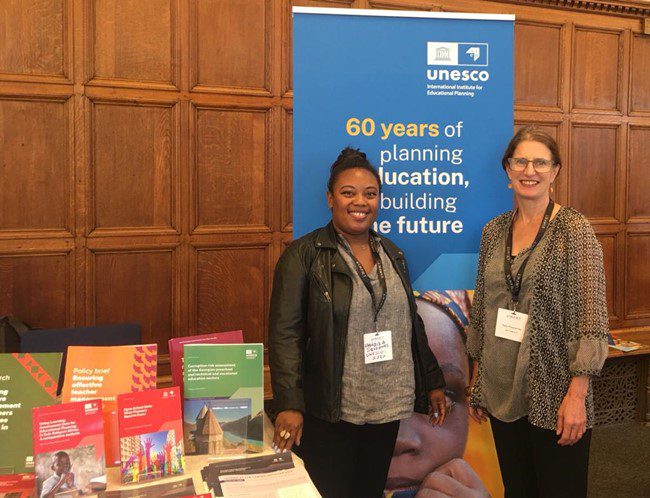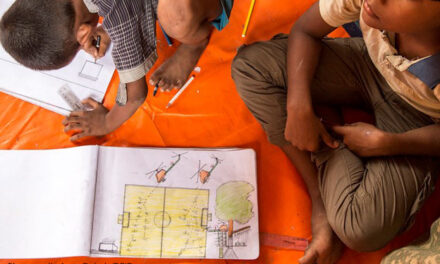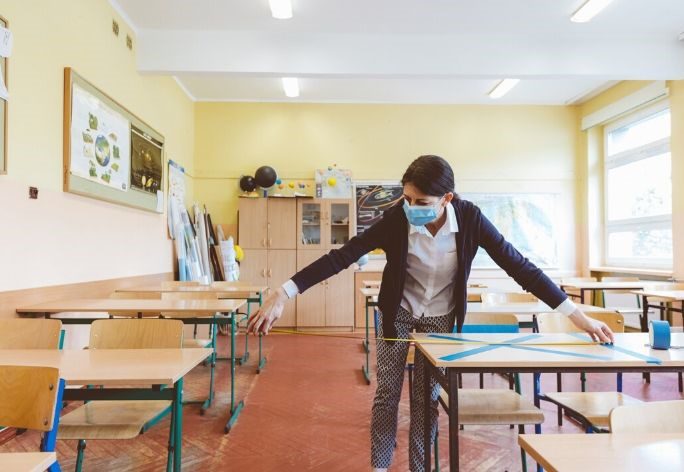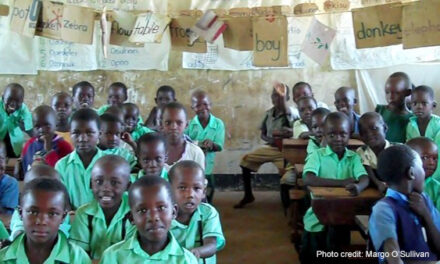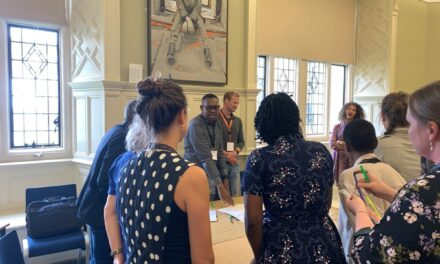This blog was written by Fabricia Devignes and Sally Rosscornes, IIEP-UNESCO. It follows their attendance at the UKFIET 2023 conference and engagement with other delegates.
Delighted as we were to have our symposium accepted in the Rights, Equity and Inclusion sub-theme at the recent UKFIET conference in September 2023, we were also aware that we may be preaching to the converted and that our audience would be one of experts. With the ambitious overall theme of the conference calling for the international education sector to use education for social and environmental justice, the schedule was brimming with presentations on inclusion and equality; and gender was much mentioned, to our satisfaction. However, a comment from a fellow delegate about the relative absence of gender considerations in some of the other sub-theme topics like climate and new technologies led us to question whether it penetrated all corners of the debating space or whether (yet) again we are putting gender equality in a box.
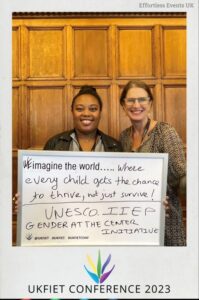 The IIEP-UNESCO Gender at the Centre Initiative banner under which we presented our approach and current applied research strands was conceived of against a backdrop of widespread gender inequalities in education, and of girls’ and women’s right to education too often being unfulfilled and de-prioritised. It seeks to redress this through prevention rather than cure, instilling gender transformative approaches into education data collection and analysis, policy-making, planning, budgeting and management at the earliest stage possible to stem avoidably unequal gendered education outcomes.
The IIEP-UNESCO Gender at the Centre Initiative banner under which we presented our approach and current applied research strands was conceived of against a backdrop of widespread gender inequalities in education, and of girls’ and women’s right to education too often being unfulfilled and de-prioritised. It seeks to redress this through prevention rather than cure, instilling gender transformative approaches into education data collection and analysis, policy-making, planning, budgeting and management at the earliest stage possible to stem avoidably unequal gendered education outcomes.
Gender equality in and through education is about so much more than ensuring more and better access to education for girls, more than achieving gender parity in classrooms, and yet the conversation too often starts and stops there. It is about changing the narrative and the underlying expectations for all children. It is about understanding in depth the values and norms that lead to inequality and not assuming these can be changed instantly. It is about representation at all levels of education and associated sectors. It is highly political and has economic and social implications. It involves, for example, looking at the evidence about the impact ed-tech expansion is having on gender equality before rushing to adopt it. And about putting gender equality at the centre of crisis-preparedness and climate change mitigation, rather than adding it as an afterthought. Ultimately, it is about “full recognition and redistribution” as one speaker neatly put it.
It was enriching to meet so many forward-thinking individuals and organisations at the conference and to have space to think about the position we adopt. At future conferences we hope we will rise to the challenge and think more strategically before selecting our sub-theme so that discussions on gender equality in and through education are not restricted to questions of demand and supply but claim a central position in all related educational debates and policies.

